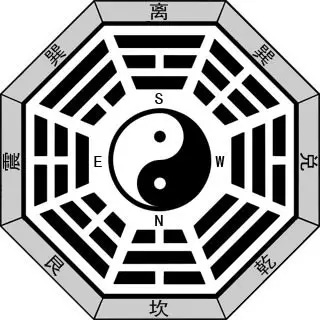I really like using the I Ching. This ancient Chinese book of divination is said to have been written around 1000 BC, and there’s not a bit of it that feels dated. Can you think of a more appropriate measure of truth?
The principle of the book is as follows: you roll three coins six times, or do something with yarrow stalks (I’ve never tried that method), and then you receive a “hexagram”: a combination of six lines which corresponds with a passage in the book that tells you exactly what you need to hear at that given moment.
Carl Jung wrote a foreword for the book where he talked about the metaphysics behind this. Basically, the whole thing rests upon synchronicity—each moment is destined to give you the hexagram that you need because the energy of that moment necessitates it. I’m butchering this—if you’re interested in this idea, read Jung’s foreword.
However, regardless of whether or not you buy into the idea that the universe really will deliver on the book’s promise of presenting you with the right hexagram at just the right time, the book gives some sound advice.
The I Ching is associated with the Yin Yang symbol, and for good reason. The whole philosophy of the book rests upon the principle that in everything lies its opposite. The book is called The Book of Changes, and in each passage its reader is reminded that everything changes. When success is prophesied, the book warns that it will not be permanent, and the book reminds its reader to steel themselves against this knowledge. When times of failure are imminent, the book tells its reader to bide their time quietly and without arrogance, for the tides will turn again.
In short, one may best accurately describe the underlying principle of The Book of Changes as: whatever your situation is today, rest assured that it will be the opposite tomorrow.
Well, almost. There are tricks in there for maximizing your good fortune and minimizing bad. The user of the I Ching is not a passive observer of his fate but a surfer riding the waves. Each hexagram details the fate of “the superior man”: one who acts rightly. Though we rely on the universe to deal us a good hand, it is up to us to respond properly to make the best of it.
This is an optimistic thought. We will always be dealt a good hand at some point—that is the law of change. When approached this way, failures may be explained away by unfavorable conditions, and consistent rightful action makes success inevitable.
Thank you for reading. If you enjoyed this post and would like to support my work, consider becoming a free or paid subscriber.
You can also buy me a coffee





Since our discovery of this book, I feel like we can more easily see the synchronicity described by Jung being acted out in our lives. It’s a great book, and might just be the key to really understanding the universe (on an extremely abstract basis).
Yep, I've had my copy since 1961, a gift from my then wife to be in NYC, the book & the wife still with me in Alaska.
I just asked my I Ching what advice I, sitting up here atop the world, could pass alone to two young, very promising thinkers and writers down in NYC: Got hexagram 23, PO, moving lines the first, third and fifth places. My interpretation, keep on truckin' (fifth line sez all) -but don't quit your day jobs just yet.